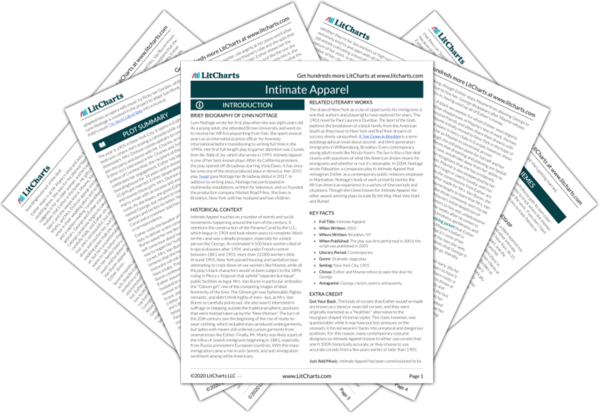When Esther notes that the ladies at church are only inviting her to things because she's married, it again shows that in Esther's society, she's now achieved feminine perfection by getting married, no matter how dysfunctional that marriage might be behind the scenes. While George is certainly hobbled by his pride when it comes to getting a job, it's worth noting that he takes offense to being unemployed and having an employed wife. This suggests that he wants to feel powerful and, specifically, more powerful than Esther is.
